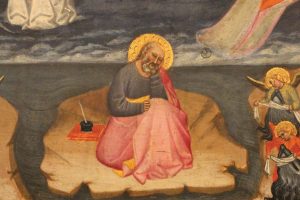While Catholic moral teaching on medical treatment has been in place for hundreds of years, the last three decades have seen increased development and debate.
In the last five years in particular, the hierarchy has explored questions about tube feeding and the meaning of "ordinary" and "extraordinary" treatment-both for people in the rare, chronic condition called persistent vegetative state (PVS) and people who are at the end of life. Here are some of the key conversations and pronouncements on the topic:
1980
Because of frequent and widespread misunderstandings of the definition of "ordinary" (obligatory) and "extraordinary" (generally nonobligatory) means (medical treatments)-terms that date back to the 16th century-the Congregation for the Doctrine of the Faith proposes new terminology: "proportionate" and "disproportionate" means.
2004
Pope John Paul II addresses the international conference on the vegetative state and says: "Administration of water and food, even when provided by artificial means, always represents a natural means of preserving life, not a medical act. Its use, furthermore, should be considered, in principle, ordinary and proportionate, and as such morally obligatory."
2005
Terri Schiavo, who is a PVS patient, has her feeding tube removed following a seven-year legal battle; her death by dehydration occurs on March 31.
In July U.S. bishops submit questions to the CDF about artificial nutrition and hydration (ANH) for PVS patients.
2007
The CDF responds in August to the U.S. bishops' questions and affirms John Paul II's 2004 statement: ANH is ordinary and obligatory for patients in a vegetative state except when it would be impossible to provide, when the patient is not able to assimilate food and liquids, or when it may be excessively burdensome for a patient or may cause significant physical discomfort. The U.S. bishops say this is a development, not a change, in church teaching.
In the December issue of Commonweal, Daniel P. Sulmasy, O.F.M., chair of ethics at St. Vincent's Hospital in New York City, writes that the CDF document is "narrowly circumscribed . . . It refers only to patients in the very rare condition called PVS." Sulmasy further argues, "Patients who become sick enough to need a feeding tube when they have cancer, Alzheimer's disease, Lou Gehrig's disease, and Parkinson's disease, are likely to die quickly with or without a feeding tube . . . . No one should be told in any Catholic facility that on the basis of the CDF's statement, feeding tubes are morally obligatory for all Catholics who cannot eat."
2008
Health Progress publishes an article in its May-June issue by Cardinal Justin F. Rigali, chairman of the bishops' Committee on Pro-Life Activities, and Bishop William E. Lori, chairman of the Committee on Doctrine, titled "On Basic Care for Patients in the ‘Vegetative' State." The article says, "Certainly this basic principle [of the moral obligation to provide food and water] applies when patients have chronic but stable debilitating conditions that are less extreme than the ‘vegetative state.' . . . Helpless patients with conditions such as quadriplegia, mental illness, or Alzheimer's disease also must not be deprived of basic care and ‘abandoned to die' because their long-term care may burden others." They further argue, "The CDF's statement about the general or presumptive obligation to provide food and fluids as a form of ordinary care clearly has broad application. . . . The argument that in such cases [where seriously disabled patients need help to obtain such basic care] the cause of death is merely the underlying condition (the inability to eat and swallow for oneself) is not valid, and is explicitly rejected by the CDF."
Rigali and Lori publish "In Defense of Human Dignity" in the Oct. 13 issue of America, making many of the same points as their Health Progress article, although limiting the discussion to PVS, and reprimanding the authors of two 2008 articles that appeared in America and which, in questioning the obligatory nature of feeding tubes, Rigali and Lori said misrepresented church teaching.
2009
The Consortium of Jesuit Bioethics Programs publishes "Undue Burden? The Vatican and Artificial Nutrition and Hydration" in the Feb. 13 issue of Commonweal. The article says "Persons with advanced dementia who receive tube feeding have the same life expectancy as those fed by hand. Similarly, several studies involving patients dying of cancer indicate that their life expectancy is not prolonged by ANH . . . . In our view, tube feeding implemented for convenience, or to assuage the sensibilities of the family . . . is inappropriate . . . . We believe that ANH should be started whenever the likely benefits to a patient outweigh its burdens. However . . . if patients or physicians in Catholic hospitals fear that ANH cannot be discontinued once it is started, then some physicians will be less likely to offer the option, even when it might be appropriate to do so as a short-term trial."
Considering the continuing conversations among bishops, ethicists, and experts, some Catholics on the ground are understandably confused when facing tough decisions regarding how to care for terminally ill loved ones.














Add comment